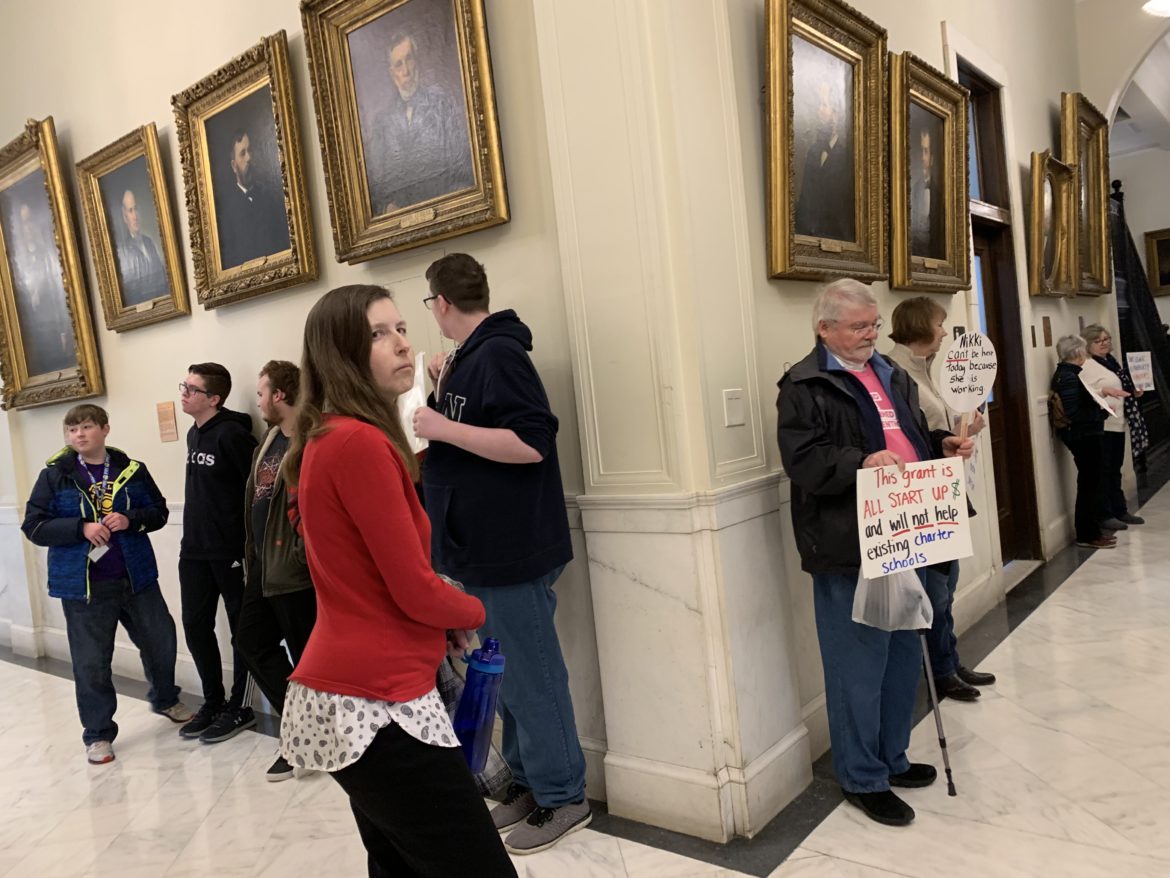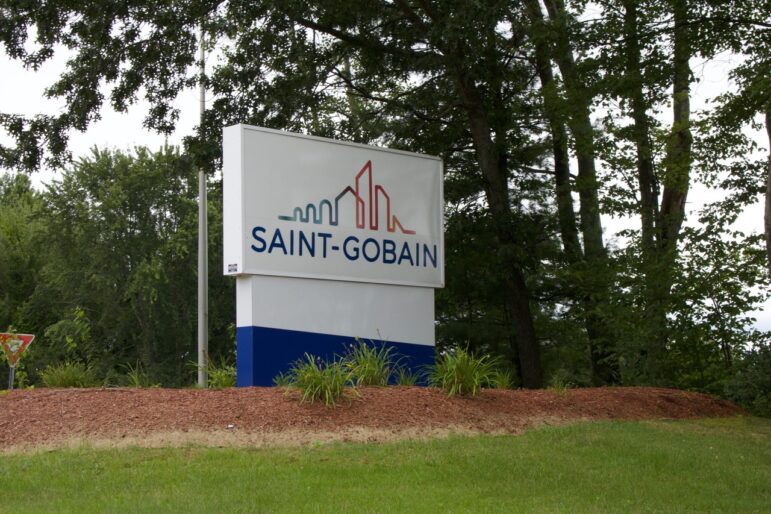NANCY WEST, InDepthNH.org
CONCORD – Members of the Senate Finance Committee on Tuesday heard testimony about newly proposed legislation to accept a $46 million federal grant to increase the number of charter schools in New Hampshire.
Sen. Jeb Bradley, R-Wolfeboro, introduced the legislation, SB 747, that would allow the state Department of Education to go around the legislative process in which the Joint Legislative Fiscal Committee has twice rejected the grant claiming it wouldn’t be sustainable, and tabled a similar proposal just last week.
Bradley said he believes that the grant deserves a full legislative hearing rather than having it stopped by the Joint Legislative Fiscal Committee.
“Charter schools in New Hampshire are public schools,” Bradley told the five-member Senate Finance Committee chaired by state Sen. Lou D’Allesandro, D-Manchester. “But they offer unique opportunities particularly for students in New Hampshire that are at-risk whether they have learning disabilities, whether are being bullied or their financial status.”
Bradley said the state has 28 charter schools that serve 3,800 students.
“I come at this as a parent. I know as the father of four kids that kids need different options and opportunities. We have good public schools in New Hampshire. That’s not the point. The point is there needs to be different options for them to thrive and reach their potential,” Bradley said. Three of his children thrived in traditional schools, he said.
“My fourth child needed something different,” Bradley said.
Education Commissioner Frank Edelblut testified about the need to accept the grant and pointed to the National Education Association that he said published a brochure filled with misinformation when it comes to charter schools in New Hampshire.
State Sen. Dan Feltes, D-Concord, a member of the committee, questioned Edelblut about whether he would accept an amendment that would make sure New Hampshire taxpayers would be protected from additional costs in the future if the grant is accepted. Edelblut said he would have to make sure such an amendment wouldn’t violate state or federal law.
After the hearing, Feltes, who is running for governor, said, “In two budgets, Gov. Sununu refused to propose full funding for full-day kindergarten, refused to propose education funding increases, and he fought the Democrats’ historic investment in public school education, including for our charter schools, every step of the way.”
Feltes said SB 747 is an effort to try to appear pro-education in an election year, but said it focuses on increasing the number of charter schools, not supporting existing charter schools.
“That’s a costly, long-term commitment when we have declining student enrollment statewide. President Trump is already defunding this grant, and New Hampshire taxpayers will be left holding the bag. We need to put our taxpayers, our kids, and our existing charter schools in New Hampshire first—not Gov. Sununu’s political agenda,” Feltes said.
The public hearing was moved to Representatives Hall expecting a much larger turnout than the 50 or so people who showed up.
Citizen Elizabeth Corell attended the hearing opposed to accepting the grant.
“I think it’s really important that we fund our public schools properly. Right now, it is a tax burden and I think about Pittsfield and Franklin and Berlin and the struggles they are having. What we really need to do is put funds in those facilities,” Corell said.
The committee that also includes Sens. Bob Giuda, R-Warren, Cindy Rosenwald, D-Nashua, John Reagan, R-Deerfield, is expected to vote some time in March after the legislative break next week and if it passes, the bill would go to the full Senate for a vote.
Bradley called on D’Allesandro to take up the cause in a bipartisan effort similar to the one that worked when they both voted for the first Medicaid expansion.
“We rolled up our sleeves,” Bradley said. As a result 50,000 more people have health insurance, he added.
Barbara Higgins, managing director at Capital City Charter School and a member of the Concord School Board, said she taught in a traditional public school for 21 years “so I see the public school side of things, too.”
“The attitude I take toward charter school funding is that more is better for everybody, more opportunity for students who don’t necessarily fit in the mold of their home school,” Higgins said.
Michael Fournier, 15, a freshman at Capital City Charter School, attended the hearing with several classmates.
“I like the freedom that we get to roam around, have breaks and to learn a lot,” Fournier said of his charter school education.
Executive Councilor Andru Volinsky, D-Concord, who is also running for governor, denounced the grant as an “Edelblut power grab at the expense of public schools.”
“Towns like Berlin are hurting, to the point where Berlin has closed its last elementary school due to lack of public education funding. Unfortunately, Betsy DeVos’ cronies would rather create new charter schools while citing weak, politically motivated analysis that makes overblown claims about saving taxpayers’ money,” Volinsky said.
Sununu released a statement calling the grant a “game-changer.”
“There are over 1,300 New Hampshire students on waiting lists to get into public charter schools, and it is on us to open these doors of opportunity for them. I hope the Democrats that previously shut down this grant opportunity listen to the families that are impacted and put kids above special interests,” Sununu said.





